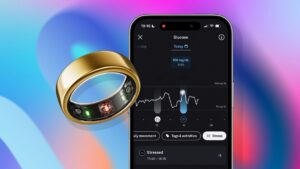
It is estimated that 47 million Americans take daily cholesterol medication, primarily statins, according to 2024 data from Yale Medicine. These lipid-lowering drugs are crucial in preventing plaque accumulation in the arteries, a condition that significantly increases the risk of heart attack and stroke. However, a concerning number of eligible patients are not on statins, researchers warn.
Despite eligibility, many patients with high cholesterol do not take statins or similar cholesterol-lowering medications. According to a new study led by researchers at Johns Hopkins University, closing this treatment gap could prevent nearly 100,000 non-fatal heart attacks in the U.S. each year. The findings were published in the Journal of General Internal Medicine.
Heart Disease: A Persistent Threat
The incidence of heart attack deaths has decreased over the last 50 years, yet mortality from heart failure, arrhythmia, and hypertensive heart disease is on the rise. “Coronary artery disease remains a leading cause of death in the U.S. and globally, despite the development of statins and other cholesterol-lowering medications in recent decades,” the study’s press release noted.
Heart disease is highly prevalent in the U.S., where risk factors such as obesity and hypertension affect nearly half of the population. As reported by the American Heart Association (AHA), someone in America dies from heart disease every 34 seconds. This equates to 2,500 deaths daily, surpassing fatalities from cancer and accidental causes combined.
The Role of Cholesterol
While high cholesterol is not the sole cause of heart disease, lowering LDL (low-density lipoprotein) levels can significantly reduce the risk of life-threatening cardiovascular events. “High cholesterol is an important chronic health condition that silently claims far too many lives,” said Dr. Seth S. Martin, lead study author and cardiologist at Johns Hopkins University School of Medicine. “Evidence-based action is critical to close the gap and prevent devastating cardiovascular events.”
Statins: A Lifesaving Intervention
Data from the study indicates that statins could prevent 100,000 heart attacks and 65,000 strokes annually in the U.S. Researchers analyzed cardiovascular risk profiles and LDL-cholesterol levels from 4,980 adults aged 40 to 75, using data from the 2013-2020 U.S. National Health and Nutrition Examination Surveys.
Among those who had never experienced a major cardiovascular event, just under half—47 percent—were eligible for cholesterol-lowering drugs under U.S. guidelines, but only 23 percent were taking them.
Furthermore, only 68 percent of individuals who had suffered a major cardiovascular event were on cholesterol-lowering medication, despite 100 percent eligibility. By closing this treatment gap, researchers estimate the following annual preventions in the U.S.:
- Nearly 100,000 non-fatal heart attacks
- Up to 65,000 strokes
- Over 10,000 heart bypass surgeries and stent-placement procedures
Prevention could save U.S. patients up to $30.6 billion in overall medical costs.
Addressing Shortcomings in Care
Dr. G. Caleb Alexander, study author and professor at the Johns Hopkins Bloomberg School of Public Health, emphasized the need for improved care. “These results add to a growing body of evidence that there are important shortcomings in the quality of care for common and costly chronic diseases such as high cholesterol,” he said. “Addressing those shortcomings would yield major public health benefits.”
The Path Forward
To bridge the treatment gap, experts recommend several measures, including enhanced patient education on the benefits of treatment for those aware of their high LDL-cholesterol levels and improved screening for others. As always, individuals should discuss health concerns with their doctors to explore potential treatment options.
In conclusion, taking cholesterol-lowering drugs when eligible can prevent thousands of heart attacks and strokes annually in the U.S., underscoring the importance of adherence to medical guidelines and proactive health management.







